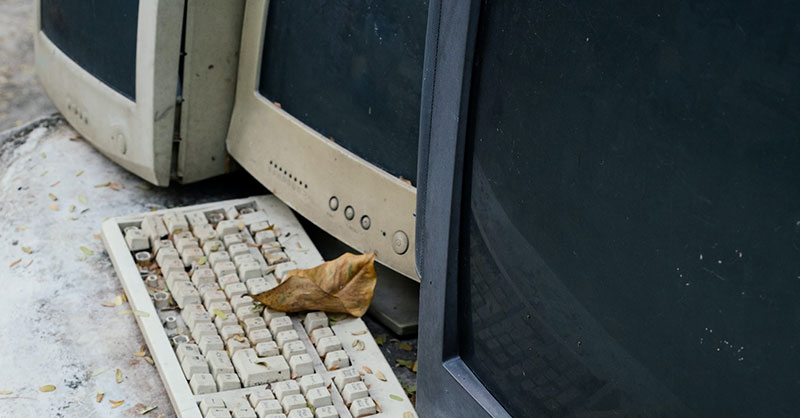Advertisement
Do you recycle your household appliances? If not, then it’s time to consider it! Major appliances are items that contain metals that can be recycled. It’s also important to make sure fridges and freezers are disposed of correctly. Fridges and freezers should be degassed before disposal, because the refrigerant in these items is often a very harmful greenhouse gas when released into the atmosphere.
In this blog post we’ll discuss important tips for recycling household appliances!
What qualifies as recyclable major appliances?
Refrigerators and freezers, air conditioners, dishwashers and washing machines are all major appliances that should always be recycled because they often contain a substantial amount of quality metals.
Depending on where in the world you live, most major appliances on offer today are labelled so you can identify what should be recycled. Microwaves, stoves and clothes dryers are also usually recyclable however the metal content and quality may be comparatively low.
All household appliances should be disposed of correctly because they’re often made with of combination of materials. Some may be recyclable and others may not so it’s worth entrusting recycling experts with your old household appliances. They can help avoid your waste going into the landfill where possible. They’ll also avoid contamination within the recycled materials.
Is refurbishment the best option?
The first step in recycling household appliance is to determine if it can be refurbished. In the disposable culture we live in today, we often throw away items that we no longer need and could be restored. Appliances like refrigerators, dishwashers and clothes dryers are more than likely still in good condition after many years of use and can be fixed to full working order.
Refurbishing appliances can provide an affordable alternative to buying new products for many families. You may find appliance stores in your region who have a great selection of refurbished models that will work just as well as the newer versions on the market today. You’ll be doing your part to protect the environment, while saving money at the same time.
Counter-intuitively, its sometimes better for the environment to replace an old appliance with a new item that is more energy efficient. This is particularly true when it comes to heating or cooling your home.
How does the recycling process work?
If it’s determined that it’s not viable to refurbish an old appliance, recycling the material is the next best alternative.
The process of recycling involves sorting the different materials from one another in order to recycle them for use in new products. The first step is often disassembling the items by hand.
Steel, copper and plastics are recovered so they can be reprocessed into new products. It can be a complex process because all metals including steel, come in a variety of grades. The steel grade used will determine the viability of recycling the material.
What about recycling e-waste?
E-waste includes items such as PCs, TV’s, cell phones, printers, and any other household item that contains a computer. If you refurbish or recycle these items it can go a long way to reducing the amount of pollution that is created by dumping them in landfill sites.
Many of these items contain toxic substances that can cause serious illness or death if they’re not disposed of properly. Recycle e-waste at the appropriate location in your region. You’ll need a place that accepts appliances for recycling with hazardous materials management capabilities. By doing so, they will recycle everything possible from copper wire to gold plating on circuit boards.
E-waste contains a high number of non-renewable materials so it’s always best to try and restore computer equipment where possible however, with the rate at which technology evolves, it’s not always practical.
Is it worth recycling small household appliances?
While you can’t usually place small household appliances in your curb-side recycling bin, this does not mean they can’t be recycled, the challenge is the commercial viability of recycling these items.
If the small household appliance is no longer working, unfortunately its often going to end up in landfill. If the item is still functional, you can donate them to your local charity store or sell them on eBay or Facebook Marketplace so someone else puts the item to good use.
The effect on the environment due to the manufacture of new appliances is taking its toll. As much as possible, do your best to create an eco-friendly home. Try to repair or reuse appliances before you dispose of them. Not only will this help save you money, it also helps save the environment and resources that can be used for future generations.

